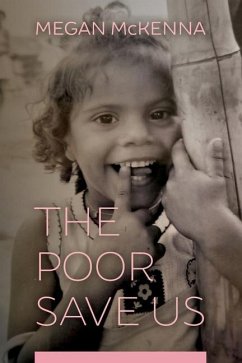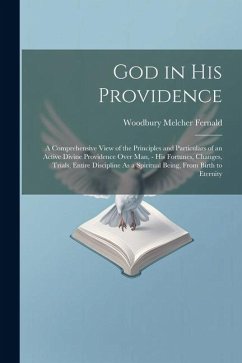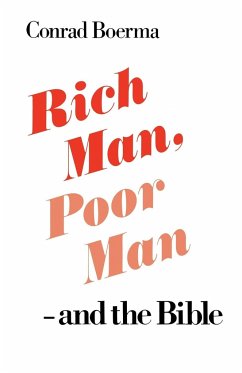
Rich Man, Poor Man - And the Bible
Versandkostenfrei!
Versandfertig in 1-2 Wochen
22,99 €
inkl. MwSt.

PAYBACK Punkte
11 °P sammeln!
ohn Capon, editor of the magazine Crusade, says of this book: `It is a sad fact that those who pride themselves most on knowing their Bibles are often the least tolerant of the poor. The predominantly middle-class nature of most churches has led to the enshrining of the Protestant work ethic as almost an article of faith. Ambition, prosperity, security are seen as virtues akin to godliness. The corollary, that poverty must be the product of laziness, lack of thrift and rootlessness, seems to be taken for granted. This book is a salutary corrective to any who think the Bible lends support to th...
ohn Capon, editor of the magazine Crusade, says of this book: `It is a sad fact that those who pride themselves most on knowing their Bibles are often the least tolerant of the poor. The predominantly middle-class nature of most churches has led to the enshrining of the Protestant work ethic as almost an article of faith. Ambition, prosperity, security are seen as virtues akin to godliness. The corollary, that poverty must be the product of laziness, lack of thrift and rootlessness, seems to be taken for granted. This book is a salutary corrective to any who think the Bible lends support to these views. With thoroughness and skill Conrad Boerma combs the biblical text from Genesis to Revelation and finds a consistency in its approach to poverty that must be taken seriously. He shows that the Bible always challenges poverty, which it sees as clearly linked to social structures. God identifies himself with the poor, most clearly in Jesus of Nazareth, who was not so much opposed to possessions as indifferent to them, renouncing his comfortable middle-class upbringing. But Boerma not only challenges unbiblical attitudes to poverty and the poor; he strikes right at the heart of every local church by revealing how far short of the New Testament ideal the contemporary church falls. Instead of providing the secular world with the prototype sharing, loving, compassionate community of men and women equal in the sight of God, he says 'congregations often consist of a number of closed social classes and detached individuals'. Well-meaning and well-planned evangelism is going to leave people cold unless the churches can catch some of the warmth of this book.'





![Sexology of the Bible [microform]; the Fall and Redemption of Man, a Matter of Sex Cover Sexology of the Bible [microform]; the Fall and Redemption of Man, a Matter of Sex](https://bilder.buecher.de/produkte/66/66146/66146549n.jpg)


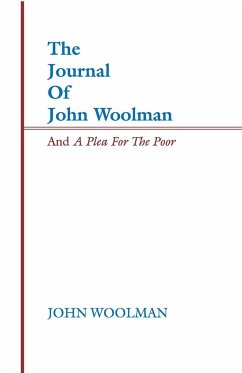
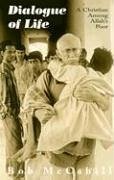
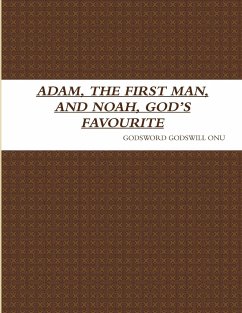
![The [go]spel of Christ Preached to the Poor [microform] Cover The [go]spel of Christ Preached to the Poor [microform]](https://bilder.buecher.de/produkte/65/65637/65637188n.jpg)
